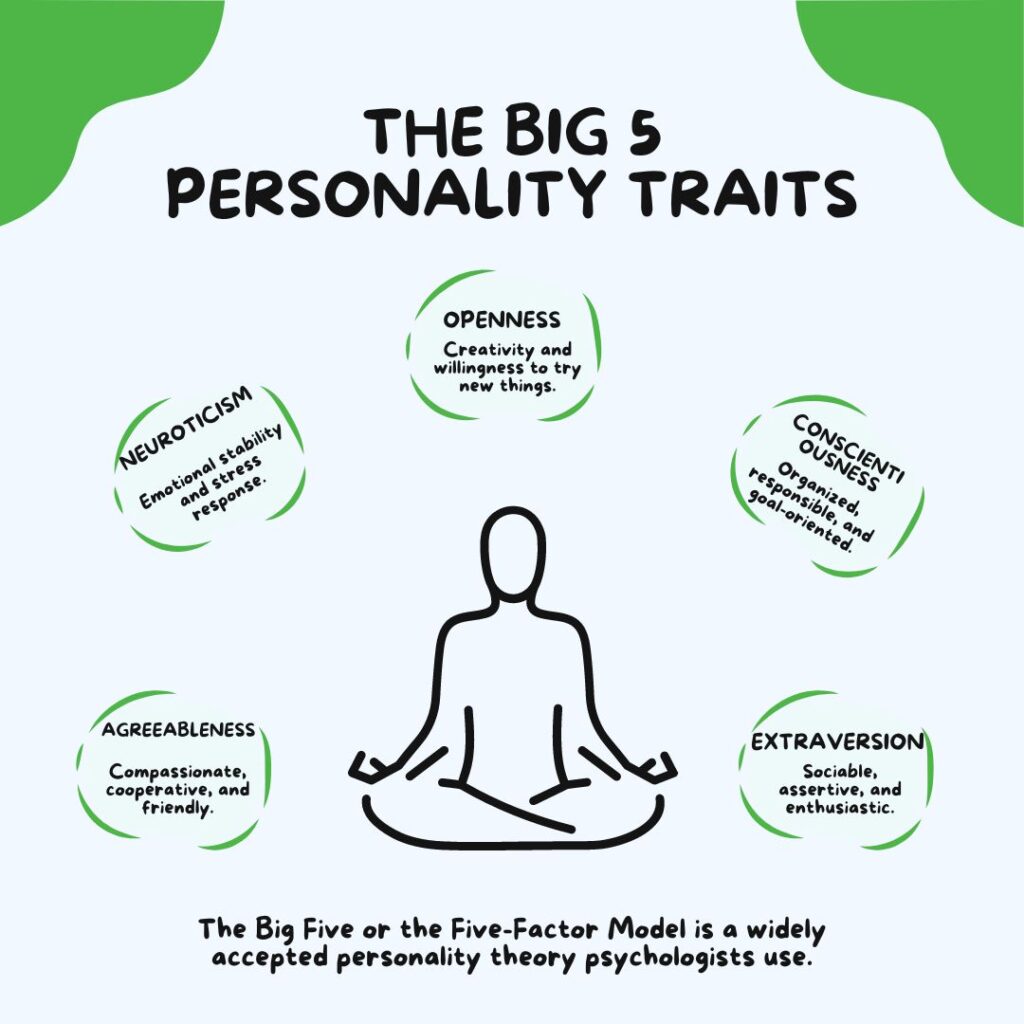Entrepreneurs or small businesses are familiar with facing challenges. They are no strangers to dealing with uncertainty and managing risks. Most understand that you must embrace the unknown sometimes. It’s part of the business journey and one of their greatest asset. But no business leader started without fearing the unknown.
Creating a business begins with embracing the unknown, even when thoughts such as the following arise. Will my business be successful? Will my business idea be well-received by customers? Is getting capital to start and maintain my business possible?
Venturing into unfamiliar territory almost always stirs feelings of fear. It’s human nature. But you can overcome those feelings and press forward.
Why Should You Embrace the Unknown?
Embracing the unknown can spur innovation or new solutions. Uncharted territory stimulates the human mind to think creatively. It puts people outside the usual confines, which can lead to the development of new ideas or approaches.
The unknown is essentially a pathway to discovering untapped opportunities.
Plus, each time people venture into unfamiliar territory, they build resilience because of the stressful nature of it. This resilience is invaluable in professional and personal contexts.
It equips people to handle future uncertainties with more grace and agility, improving their ability to navigate challenges.
Embracing the unknown can:
- Enhances personal and professional growth by instilling confidence, sharpening problem-solving skills, and encouraging a growth mindset.
- Mold individuals into better leaders. Those who boldly traverse unexplored terrains can set good examples for their teams that can improve culture and resiliency within the organization.
- Provide a competitive advantage in the current fast-paced business landscape. Businesses that can quickly adjust to new circumstances and capitalize on the opportunities uncertainty brings often lead the industry.
So, how do you embrace the unknown? Or how can you build your unknown-embracing muscle?
1. Understand Your Most Prominent Personality Trait
The BIG-5 broad personality traits give us a useful framework to understand why people fear the unknown. These are openness to experience, conscientiousness, extraversion, agreeableness, and neuroticism.
Understanding your dominant personality traits is a good first step toward embracing the unknown.

Openness to Experience
The trait of openness to experience is particularly relevant when facing uncertainty.
It describes a person’s willingness to try new things, be imaginative, and be receptive to various experiences. High scorers tend to be creative, curious, and open-minded, while low scorers may prefer routine and familiarity.
People who score high on openness are usually comfortable with the unknown. In contrast, those who score low may prefer routines and resist new experiences.
Conscientiousness
This trait represents a person’s level of organization, reliability, and how goal-oriented they are in life. High scorers are typically organized, responsible, and hardworking, while low scorers may be more spontaneous and less focused on detail.
Extraversion
This reflects a person’s sociability, assertiveness, and general enthusiasm levels. High scorers (extroverts) are often friendly and outgoing and enjoy being around people. Low scorers (introverts) may prefer solitary activities and have smaller groups of friends.
Agreeableness
This trait describes a person’s tendency to be compassionate and cooperative and their preference for social harmony. High scorers are usually friendly, empathetic, and helpful, while low scorers may be more competitive and less considerate of others’ feelings.
Neuroticism
This trait represents a person’s emotional stability and degree of negative emotionality. High scorers may experience mood swings and anxiety and may be more prone to feeling stressed. Low scorers are typically more emotionally stable and less reactive to stress.
Each trait is independent of others, meaning a person can have high scores in several Big-5 personality traits simultaneously. For example, someone could concurrently exhibit high levels of openness, extraversion, and conscientiousness. It’s also possible for a person to score low on one trait but higher on another.
2. Shift Your Perspective
Shifting your perspective is a crucial step in learning to embrace the unknown.
In business, the fear of uncertainty can lead to risk aversion or a reluctance to innovate, limiting one’s potential. But what if, instead of viewing uncertainty as a threat, more people saw it as an opportunity?
This shift in perspective could act as a catalyst for growth, propelling your business to unprecedented heights.
Some key ways to rethink uncertainty include the following.
Impermanence as a life principle
Remember that everything in life is transient. Whether it’s good or bad, it will pass. For instance, market trends in business are never static and frequently shift. A product or service in demand today might be less popular tomorrow.
This understanding that nothing is permanent can help you be more accepting of uncertainty and better prepared to adapt to changing circumstances.
Recognize the value of letting go of attachment
This is a core principle in Buddhism. By letting go of outcomes or things, people can become more open to different possibilities and less likely to suffer when stuff doesn’t go as planned.
For example, consider an entrepreneur heavily invested in a particular business strategy. If it doesn’t work as expected, they could experience significant stress or disappointment. As a result, the person may quit being in business altogether.
However, if the individual lets go of the attachment to this one strategy and opens themselves up to alternative paths, they would be better off.
People learn from their experiences and uncover new opportunities for success more easily when they are not attached to outcomes.
Value new paths and experiences as growth drivers
Trying new things leads to learning, which in turn brings growth. For instance, consider a business venturing into a new market or introducing novel products. The process is often fraught with unknowns and risks.
But it also opens up opportunities for expanding the customer base, boosting revenue, and gaining valuable insights. Embracing the unknown can mean embracing a broader horizon for potential growth.
Strength from surviving the unknown
Uncertain situations can be stressful, but as noted earlier, overcoming them makes people stronger and more resilient. Think of a time when an unexpected obstacle arose in your business — perhaps an unforeseen operational hiccup.
Though initially stressful, you probably found yourself armed with new knowledge and strategies after navigating through it. You came out of it stronger and more capable than before.
Such experiences can bolster your ability to handle future uncertainties and transform potential threats into personal and professional growth opportunities.
Build control over personal reactions
While people can’t control what happens around them, they completely control the response.
For example, let’s assume a significant change in regulation occurred. You cannot predict or control such changes, but you can always manage your reactions.
Similarly, Artificial intelligence (AI) is putting some jobs at risk. Some affected people may take to the streets to protest. Others may learn new skills or improve existing ones to the point where they become valuable to the job market again.
Your control over reactions makes a huge difference in personal and business situations.
More excitement through embracing the unknown
Uncertainty can add a layer of exhilaration to the otherwise predictable cycles of business operations. It brings unpredictability and excitement that can drive innovation and push the boundaries of what’s possible.
Additional Tips
- Stop overthinking and overplanning: Allow yourself to make decisions based on the present moment and facts rather than worrying about the ‘what ifs.’
- Learn to live in the present moment: This reduces anxiety about the future and allows you to fully engage with what’s happening now.
- Indulge in spontaneous experiences: Whether it’s a new project, an unexpected business collaboration, or an unplanned trip, try something new if safe to do.
- Avoid comparing past experiences with present situations: Each situation is unique. Drawing too much from past experiences can cloud judgment and limit openness to new possibilities.
- Switch fear for curiosity: Instead of fearing what’s next, be curious about it. This shift in mindset can enhance your enjoyment of life.
- Practice gratitude: Try to appreciate the good in every situation, recognizing the potential benefits from each circumstance.
Transform Your Business and Life
Life is full of uncertainties, and so is the entrepreneurial journey. Understanding the fear of the unknown and shifting perspectives allow individuals to use uncertainty as a powerful tool for growth.
Businesses that thrive are often the ones most innovative and adaptable. Such companies pivot during crises rather than limit their activities because of fear. They leverage every situation to find new ways to meet customer needs and remain relevant.
Take Elon Musk, for example. Throughout his entrepreneurial journey, Mr. Musk has demonstrated a remarkable ability to embrace the unknown. He often plunged headfirst into industries he had little experience in, facing immense uncertainty.
When SpaceX launched in 2002, he was venturing into an industry traditionally dominated by government entities and faced numerous technical and regulatory challenges. The early years were fraught with uncertainty and failure, with several rocket launches ending in explosions.
Yet, Mr. Musk and his team persevered, embracing the unknown as a pathway to innovation success.
His story and that of many others is a reminder that each uncertain situation people survive can make them stronger. The unknown isn’t usually something to fear; it’s something to explore.

Gabriel Nwatarali is a copywriter, SEO expert, and the founder of Tech Help Canada. He helps founders attract the right kind of search traffic through SEO strategy, content that ranks, and conversion-focused copy. In one project, a single copy tweak helped a brand increase downloads from a few hundred to 10M+. Want a second set of eyes on your site? Reach Out Here
Want a heads-up once a week whenever a new article drops?







